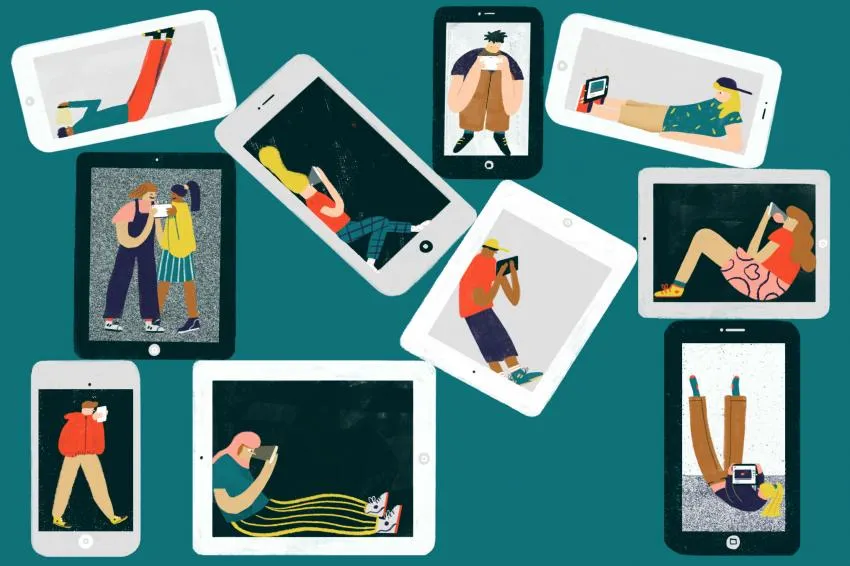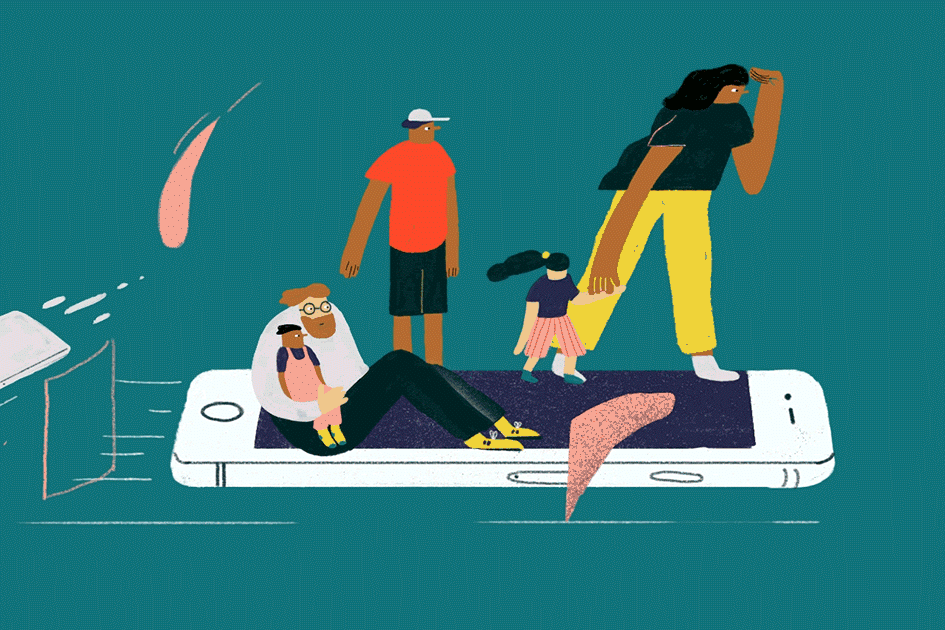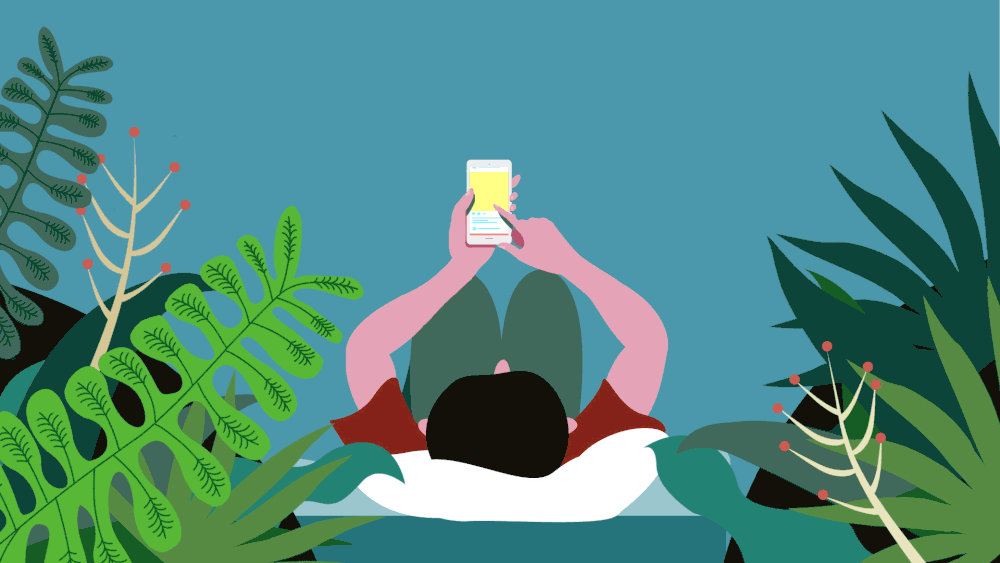Rebooting Life - The Physical And Mental Impact Of Digitization
Seeing the world diving into virtual reality has really become a matter of concern now. The indulgence might have brought us closer to people living far away, but it has pushed back the people that are still physically present around us. Lockdown plays a very strong role to make people feel the necessity of living in the digital space.
Is the need for technology gradually shifting towards addiction? To what extent, are we spending our life browsing or using other applications on our phones or laptop?

What impact can digitization have on our lives? Are we still progressing or is this just an illusion?
This crisis has led us to start living our lives within a digital frame. Work from home, online classes, zoom calls - have become a part of our everyday life. This convenience of having everything easily available for access has really sidelined our physical and mental health.
Nowadays, it is being observed that working parents are actually using these digital platforms, to escape from their parenthood. It definitely becomes a lot easier for them to manage their toddlers. Irrespective of the actual harm that this habit is causing.
It is really sad to see those kids, who used to play outside, are now happily playing inside the techno box. These changes might seem very small for now, but it will badly affect their life in the long run.

“Whenever My 10-year-old daughter cries, I hand her my phone so that she gets engrossed in it and stops whining. I even let her listen to rhymes on digital platforms, which makes her learn things more efficiently” says Rekha Singh,36, a homemaker from Jamshedpur.
This might seem the best way to make your kids understand and learn her course, but is it safe to do so?
As we know, kids pick up bad habits very quickly. Facing the harshness that comes with staring at our screens all day, can really damage one's eyesight very badly. It can even affect mental health as well.
It is understood that going digital has become a necessity now, but anything used beyond a certain extent of moderation can only bring infliction to the users.
Vishal Das, 24, a motion graphic and sound designer at Phoenix Live, Bangalore says, “I work for almost 12-14 hours, digitally. It becomes very tiresome for me to maintain the same creativity level and enthusiasm, working all day. Digital work drains my energy more quickly and hampers my physical and mental health. Especially my eyes, it gets badly hampered and starts hurting. So, I make sure that whenever I face the screen, I have my glasses on. There are days when I face severe back pain, due to the long hours of exposure to my laptop screen. I try to take breaks and have snacks in between, listen to music, and do my regular workout - to be able to do my work efficiently.”
The work aspect has made us digital slaves, where our freedom is being passed into the hands of big industrialists. Further, the cheap rates of mobile data influence us to never break this course of digital dilemma.
So what is it that can be done to overcome this obsession? To remove this addiction to being a digital junkie, people are going for a digital detox. That is, going for a small break by getting off the digital world. This has helped people to have a rhythm in their life.

“I think we are closer to the digital world, more than ever. Everything and everyone is just a click away. Be it information, shopping, talking, or simply connecting with people. Technology has made a lot of things effortless and so much more convenient. Well, it has its own advantages. Social connectivity, communication speed, and even the nature of working have been transformed.”
“However, as a technology junkie, it is difficult to live our lives without it. We have become lazy, both physically and mentally, it also has the capability to wreak havoc in our social lives as well. “
“There is an increase in social disconnect amongst people, we are so used to socializing and communicating digitally, that a lot of us are actually forgetting the art of real-life contact. This has led to a sense of disconnect & isolation. I also feel that it has started to overpower us. So taking a digital detox every now & then is proving to be quite healthy. I’ve tried a digital detox a few times, and I couldn’t be any more in support of it than I already am.”

“Sadly other than a digital detox, there doesn’t really seem any other way to tackle this issue. Either one can detest technology, which honestly doesn’t make much sense. So the key is balance. Maybe set time limits to your daily usage of technology and to indulge in a digital detox every month or twice a month, whatever seems suitable. Having tried this hack of ’balancing’ my technology, usage time has really decreased. It has certainly helped me a lot in staying sane, in this otherwise super modern yet insane world”, says Diva Pratap Singh, 24, Media communication student, New Delhi.
The growth of digital communication has made almost everything possible. This might seem good for the current scenario, but it is badly affecting what the future might hold. The invisible barrier of technology has really made us avoid people sitting next to us. We have left those times behind, where one used to sit and spend time with our family was of great importance. The face to face interaction is losing its essence due to the screen to screen interaction. Honestly, it is tough and impractical to be away from the digital world, but small steps to keep your phone away for even an hour can be a good start for a better future.
Opinions and Perspectives
I totally relate to this article. I find myself spending way too much time on screens lately. Anyone else feeling the same?
The part about kids and screen time really hits home. My nephew barely goes outside anymore, just glued to his tablet all day.
Actually, I think technology has been a lifesaver during lockdown. Without it, we would have been completely isolated.
True, but have you noticed how much our attention spans have shortened? I can barely read a book without checking my phone.
The digital detox idea mentioned in the article sounds interesting. I tried it for a week and felt so much more present.
Working 12-14 hours digitally like Vishal Das mentions in the article is my reality too. My eyes are constantly strained.
Has anyone tried those blue light glasses? I'm wondering if they actually help with eye strain.
I use them! Made a huge difference for my headaches during long work hours.
The article makes some valid points about social disconnect, but I think it's a bit one-sided. Technology has brought my family closer together.
Just because we're more connected doesn't mean the connections are meaningful though.
I found the part about parents using devices to pacify children particularly concerning. We're creating a generation of digital dependents.
As a parent, sometimes screens are the only way to get anything done. It's not ideal but it's reality.
Maybe we need to find a middle ground. Complete digital detox isn't realistic in today's world.
What really struck me was the mention of becoming digital slaves. We're all just feeding data to big tech companies.
The artwork by Nidhi Singh really captures the isolation we're experiencing in this digital age.
I disagree with calling it addiction. We've simply evolved to use new tools, just like humans always have.
But these tools are specifically designed to be addictive. That's what makes it different.



